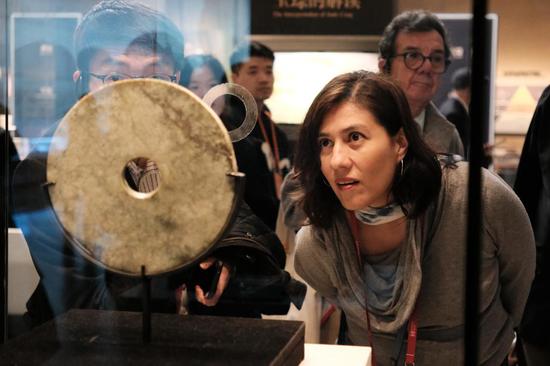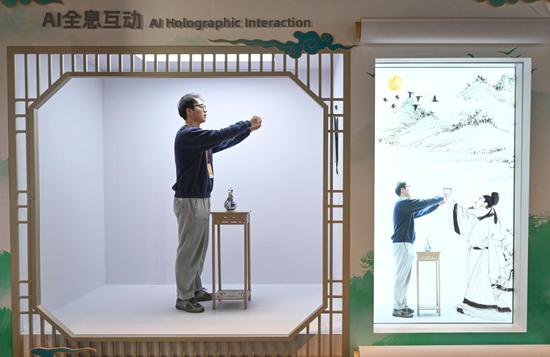Boosted by China's rapid development pace in artificial intelligence (AI) technologies, more companies have noted the huge business potential in AI companionship sectors, as simulated AI pets with adorable appearances gaining increasing popularity among Chinese consumers.
Zhang Yi, CEO of the iiMedia Research Institute, told the Global Times on Sunday that consumers' demand for emotional support and the capability of current AI technologies offer this type of products greater business potential.
A Beijing-based student in her 20's surnamed Zhang, who is also an AI technology fan, told the Global Times on Sunday that she bought "Boo Boo," a simulated AI robotic pet developed by Hangzhou-based Genmoor Technology.
"I first learned about the product during a major assignment investigation and remembered it," said Zhang, "I decided to buy it out of curiosity, but especially because of its adorable fluffy appearance and the color of its fur, which is just like my dog's."
Boo Boo is currently available on Chinese e-commerce platform Taobao priced at 1,399 yuan ($193.19). Over 300 units have been sold, with a 100 percent positive feedback rate in the last three months, the product's page showed. One employee said that it had sold out weeks ago and has now been restocked.
The AI robotic pet can develop different emotions based on its interactions with the owner and make pet-like sounds, said the staffer, noting that it is not suitable for children under three years old.
Zhang stated that the advantage of having an AI pet is that it doesn't require extra spending on food and deworming, or time for walks every day, while noting that it still lacks interaction flexibility and real companionship when compared with real dogs or cats.
Debuted by Japanese company Casio and start-up Vanguard Industries in 2021, AI pet Moflin started shipping on November 7, 2024. According to media reports, it was in high demand after its release and went out of stock in many parts of Japan.
In the domestic market, quadruped robot series BabyAlpha developed by Chinese tech firm WEILAN focuses on multifunctionality with AI "personality," ability to learn, remote control, and self-patrol among other things, according its official websites.
Zhang Yi predicted more possibilities in applying AI technologies in emotional support and companionship robots, with target users covering all age groups, and whose functions include the ability to detect users' potential physical and mental health issues.


















































 京公网安备 11010202009201号
京公网安备 11010202009201号